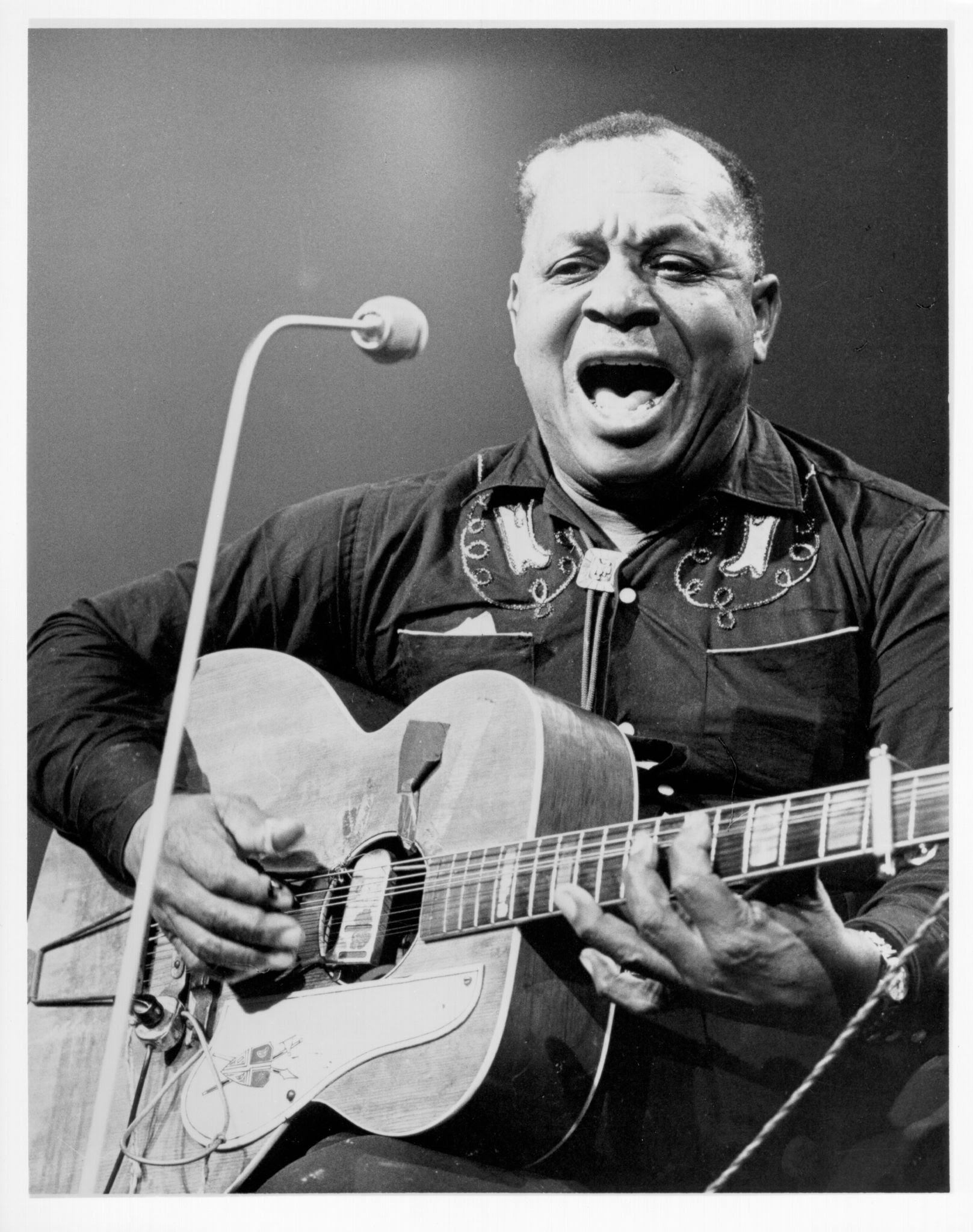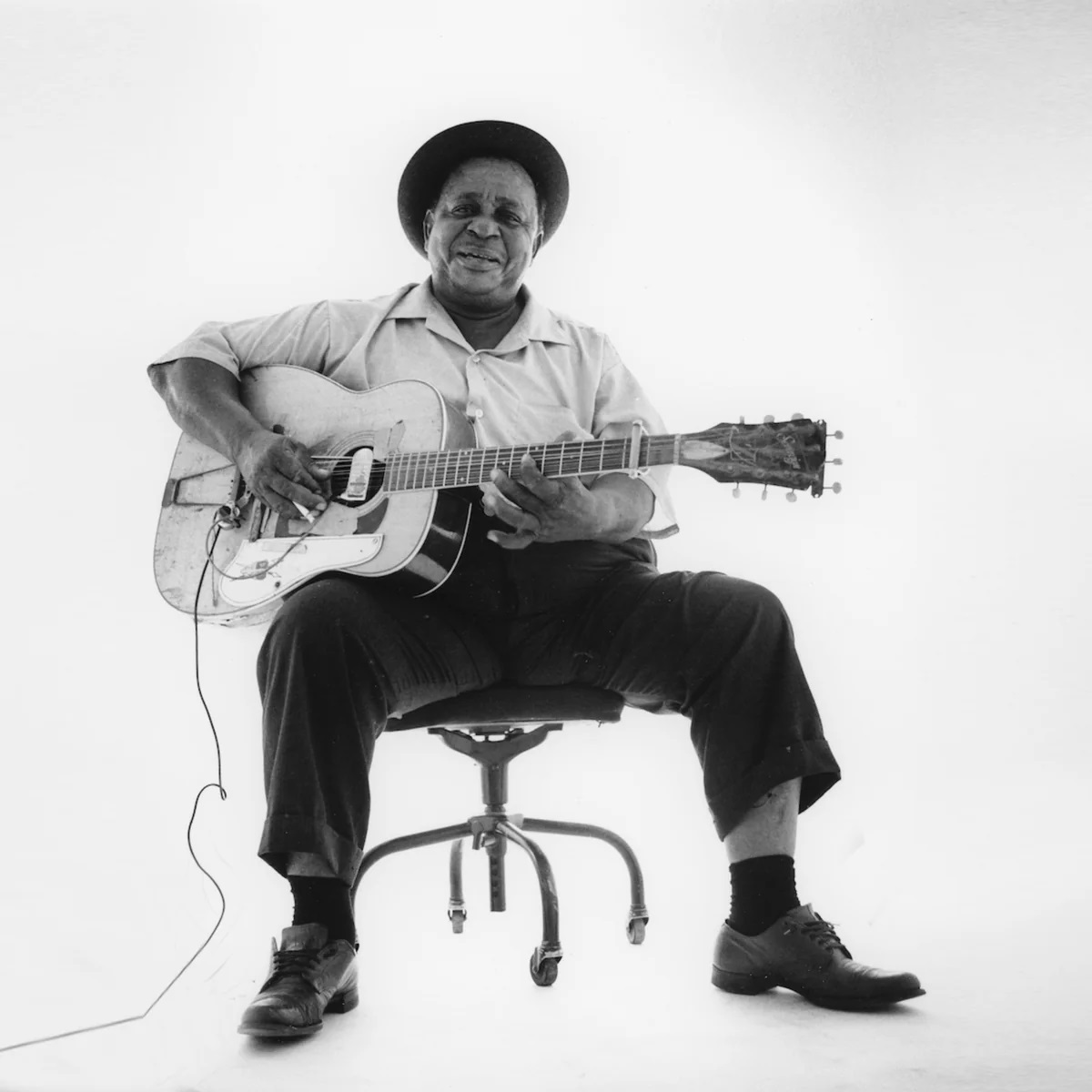Biography of Big Joe Williams
Big Joe Williams was a towering figure in the history of American blues—both literally and musically. Known for his distinctive nine-string guitar and a fiercely individualistic style, he carved a place for himself as a deeply influential Delta bluesman. His music, steeped in raw emotion and deep roots in African-American traditions, helped shape the sound and soul of the blues across several decades.
Early Life and Background
Big Joe Williams was born Joseph Lee Williams on October 16, 1903, in Crawford, Mississippi, though some sources suggest 1902 or even 1899. Raised in the heart of the Mississippi Delta, Williams grew up in a world where music was a vital part of life. He learned to play guitar as a child and quickly developed a powerful, driving sound that set him apart from his peers.
During his early years, Williams lived a nomadic life, traveling through the South and performing on street corners, in work camps, and at juke joints. This itinerant lifestyle became a defining feature of his career and shaped his gritty, no-frills approach to the blues.
Rise to Prominence
In the 1930s, Williams made his way to St. Louis and later to Chicago, both of which were thriving centers for blues music. His big break came in 1935, when he signed with Bluebird Records, a subsidiary of RCA Victor. His debut recordings, including “Baby Please Don’t Go”, became instant classics. The song would later be covered by numerous artists, from Muddy Waters and Them (featuring Van Morrison) to AC/DC, testifying to its enduring appeal.
Williams’ style was characterized by a relentless, rhythmic guitar attack, often played on a customized nine-string guitar that gave his music a raw, metallic edge. He also frequently incorporated foot-stomping and hollers into his performances, creating a sound that was almost trance-like in its intensity.
Musical Style and Legacy
Big Joe Williams was known for his innovative playing technique, which involved slapping the strings and adding extra wires and pickups to his guitar. He often customized his instruments in a makeshift way that made his sound virtually inimitable. His music was deeply rooted in Delta blues, but he also drew on elements of boogie-woogie, country blues, and even folk traditions.
Williams was not only a great performer but also a mentor to other musicians. He played a pivotal role in the early career of Muddy Waters, introducing him to the recording industry. He also collaborated with other blues legends like Sonny Boy Williamson I, Robert Nighthawk, and Lightnin’ Hopkins.
Later Years and Influence
Despite the changing musical landscape, Big Joe Williams remained active well into the 1970s. He recorded for a variety of labels, including Prestige, Delmark, and Folkways, and was a staple of the 1960s blues revival. He toured extensively, performing at folk festivals and coffeehouses, where his rugged authenticity stood in stark contrast to more polished acts.
Williams was also a frequent figure in Europe during the blues revival there, bringing his raw Delta sound to new audiences and influencing a new generation of musicians. His contributions to blues music were recognized with his induction into the Blues Hall of Fame in 1992, posthumously honoring a lifetime of groundbreaking work.
Death and Enduring Legacy
Big Joe Williams passed away on December 17, 1982, in Macon, Mississippi, at the age of 79. Though he is no longer with us, his spirit lives on in the music of countless blues and rock musicians who were inspired by his unique voice and trailblazing approach to the guitar.
Today, Big Joe Williams is remembered not just for his songs, but for his unrelenting passion, originality, and authenticity. He was a true blues original—untamed, uncompromising, and unforgettable.


Comments are closed